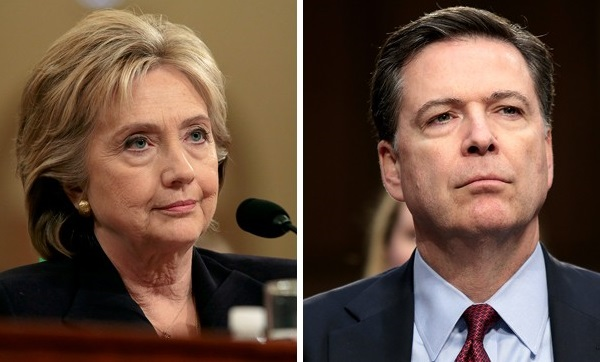[ by Charles Cameron — with a side dish of Tzipi Livni ]
.

photo credit: Greg Nash via The Hill
I’ll be socratic here, asking questions to illuminate my hunches.
**
I’m seldom fully convinced by anything that comes from the left and reads the way I’d expect the left to read, and seldom convinced by anything that comes from the right and reads the way I’d expect the right to read, so I don’t take the left’s assertions downplaying H Clinton’s security behavior with reflex belief, and on the whole I’m inclined to follow John Schindler, who — both as an ex-NSA analyst and as a regular at The Observer — takes a very hard line on Clinton’s security behavior, writing just a couple of weeks ago under the title, The Coming Constitutional Crisis Over Hillary Clinton’s EmailGate.
I also follow War on the Rocks, though, and was struck a while back by a post there from Mark Stout, drawing some interesting distinctions in line with its subtitle, “A former intelligence analyst who worked at both the CIA and the State Department explains how different approaches to classifying information sits at the heart of the scandal that threatens to undo Hillary Clinton.”
Which does somewhat complicate matters, while somewhat helping us understand them.
**
I’m neither an American nor a lawyer, and as someone who is generally inclined more to bridge-building than to taking sides in any case, I don’t feel qualified to debate the Comey-Clinton affair – but was interested to see emptywheel’s Marcy Wheeler, whom I take to be leftish, coming out today describing Comey’s decision as an “improper public prosecutorial opinion”. She writes:
Understand, though: with Sterling and Drake, DOJ decided they were disloyal to the US, and then used their alleged mishandling of classified information as proof that they were disloyal to the US ..Ultimately, it involves arbitrary decisions about who is disloyal to the US, and from that a determination that the crime of mishandling classified information occurred.
Comey, in turn, seems to have made it pretty clear that “Secretary Clinton or her colleagues“ were extremely careless in their handling of very sensitive, highly classified information” – specifically:
.. seven email chains concern matters that were classified at the Top Secret/Special Access Program level when they were sent and received. These chains involved Secretary Clinton both sending emails about those matters and receiving emails from others about the same matters.
**
Is there, in your views, special treatment in this matter for persons of high rank present here?

And out of curiosity, if so, do you see a similar case of special treatment for persons of high rank over in the UK, known to be substantially less Israel-friendly than the US, where Scotland Yard wanted to question Tzipi Livni about alleged Israeli war crimes in Gaza under her watch as Foreign Minister, and “after diplomatic talks” Livni was “granted special diplomatic immunity”?
**
On the one hand, I don’t like show-trials, trials-by-press, banana courts or mob justice, and far prefer just laws justly applied – and on the other, I can understand that the scrutiny those in high office find themselves under can render them legally vulnerable in ways that may unduly influence their decision-making – and justice may be platonically blind, but is not always uniformly applied in practice. Such, it seems to me, is the human dilemma.
What say you?









